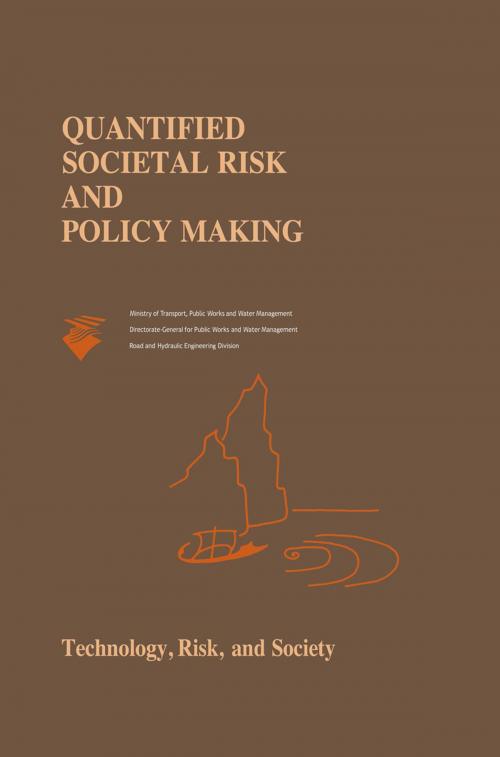Quantified Societal Risk and Policy Making
Nonfiction, Science & Nature, Technology, Environmental, Social & Cultural Studies, Political Science, Politics, Economic Policy, Nature| Author: | ISBN: | 9781475728019 | |
| Publisher: | Springer US | Publication: | April 17, 2013 |
| Imprint: | Springer | Language: | English |
| Author: | |
| ISBN: | 9781475728019 |
| Publisher: | Springer US |
| Publication: | April 17, 2013 |
| Imprint: | Springer |
| Language: | English |
Quantified Societal Risk and Policy Making is the result of an international workshop on societal risk organized by the Dutch Ministry for Transport, Public Works and Water Management with additional financial support from the Directorate for Transportation (DG VII) of the European Union.
Managing risks, whether there is a strong man-made or natural component, basically means assessing alternative options under uncertainty. The possibility of multiple fatalities is one of the factors that can vary between options.
This volume is concerned with one particular type of risk - the risk of death of a number of people in one accident - and with one particular tool - probabilistic risk analysis - as they are developing in various domains of society nowadays. Generally, this risk is labelled societal risk. This book shows how such comparisons are shaped at present in various hazard domains, such as:
- flood protection
- location and physical planning of industry
- transportation of chemicals, and
- prevention of aircraft accidents.
It examines how to represent aggregate risks from major hazards in ways that can be handled by policy-makers. The purpose of the book is to increase the awareness of societal risk, disseminate available knowledge of existing approaches, and exchange information on applications from various domains.
Quantified Societal Risk and Policy Making should be of interest to all those professionally concerned with defining the optimal separation between hazardous activities and equally desirable developments nearby.
Quantified Societal Risk and Policy Making is the result of an international workshop on societal risk organized by the Dutch Ministry for Transport, Public Works and Water Management with additional financial support from the Directorate for Transportation (DG VII) of the European Union.
Managing risks, whether there is a strong man-made or natural component, basically means assessing alternative options under uncertainty. The possibility of multiple fatalities is one of the factors that can vary between options.
This volume is concerned with one particular type of risk - the risk of death of a number of people in one accident - and with one particular tool - probabilistic risk analysis - as they are developing in various domains of society nowadays. Generally, this risk is labelled societal risk. This book shows how such comparisons are shaped at present in various hazard domains, such as:
- flood protection
- location and physical planning of industry
- transportation of chemicals, and
- prevention of aircraft accidents.
It examines how to represent aggregate risks from major hazards in ways that can be handled by policy-makers. The purpose of the book is to increase the awareness of societal risk, disseminate available knowledge of existing approaches, and exchange information on applications from various domains.
Quantified Societal Risk and Policy Making should be of interest to all those professionally concerned with defining the optimal separation between hazardous activities and equally desirable developments nearby.















